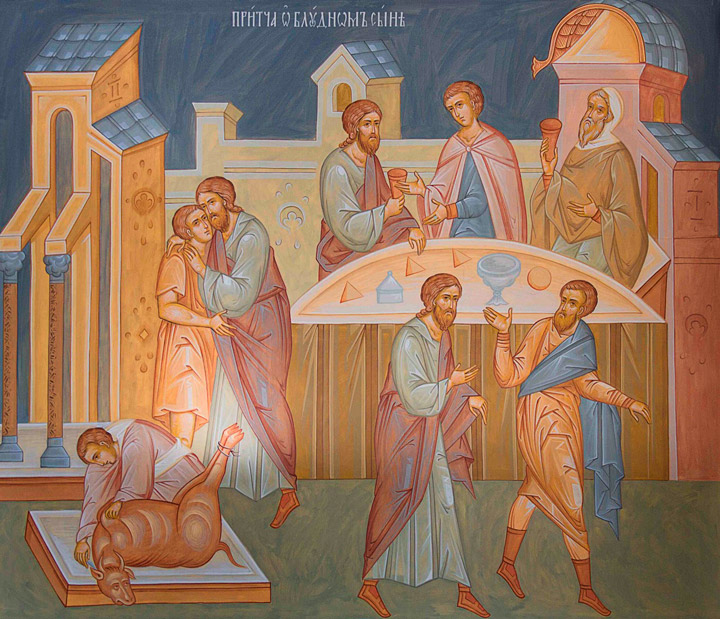
Fr. Dr. Augustine Sokolovski
Following the Week of the Publican and the Pharisee comes the third preparatory Sunday before Great Lent. During the liturgy the Parable of the Prodigal Son is read.
This is the fifteenth chapter of the Gospel of Luke, verses eleven to thirty-two. This text is of great importance. We can say that he largely shaped the existence of the entire Christian world. This small fragment of the Gospel narrative created the most important elements of secular culture and Christian spirituality.
Thus, the main hymn of monastic tonsure is dedicated to the Parable of the Prodigal Son. A person who becomes a monk takes on his image. Theology tells us that monasticism is not a sacrament, but a continuation of baptism. Thus, this parable reflects the life of every Christian.
In culture, paintings, works of art, and literary images are dedicated to the prodigal son. The phrase “Prodigal Son” has become a common expression in different languages. It is surprising that without this parable it is impossible to imagine the history of mankind.
This parable can have many interpretations. The first reminds us of Christianity. According to Scripture and the Fathers, the Church was constituted from Jews and pagans. The pagans are the prodigal son. They turned to God later than the biblical people of the Old Testament.
The second interpretation is the spiritual life of each person. Most of us turned to faith consciously. We rejected our previous mistakes and came to Christ. Heavenly Father took us into his arms.
Another interpretation reminds us of the names and images of God. God has many names. But the most important thing is the conviction that God is our Father. We talk about this in the Lord's Prayer. God became our Father in baptism. The Creed begins with the words that God is our father. “I believe in One God, Father, Almighty,” it says.
One of the ancient patericons, that is, collections about the life and sayings of ascetics, tells how a man from the city came to one of the ascetics in the desert and said: “Your father is dead.” “You are lying, my Father is immortal,” replied the monk. God is our father, “God is the Father” is not just a name, but a dogma, the essence of Christian Orthodoxy.
Thirdly, the Sunday of the Prodigal Son is All Saints' Day. After all, every saint went through conversion and repentance. Each saint received forgiveness and blessing, was clothed in robes of light, and was received into the arms of the Heavenly Father.
Finally, the parable always has a new moral meaning. We live in the postmodern era. One of its symbols is constant changeability. There is nothing permanent says our time. Changeability has become a kind of virtue of postmodernity. Therefore, we must understand that the return of the prodigal son to God will be repeated. People, peoples, countries and civilizations will forget about God, leave Him, come again, leave again and return again to the Church, which is the Father's House. The parable teaches us each time again and again to quickly and without doubt return to God; it teaches us to rejoice every time at the return of our neighbors to God, to thank, accept and not judge.